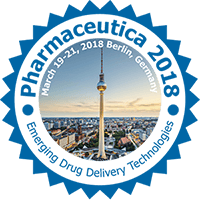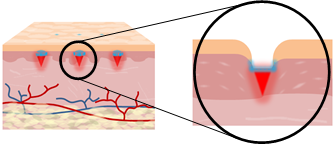
Hyungil Jung
Yonsei University, South Korea
Title: Microneedles: The future of painless drug delivery systems
Biography
Biography: Hyungil Jung
Abstract
Microneedles are micro dimensional needles capable of delivering biological therapeutics as well as cosmetics into the skin without causing pain, in a minimally invasive manner. In addition, microneedles are referred as the future of drug delivery systems due to their advantages compared to currently utilized drug delivery routes including topical application and hypodermic injection. There are various types of microneedles including solid type, hollow type and dissolving type. Solid microneedles are used to create pores onto the skin by which the therapeutics can be delivered with a higher efficiency. Hollow microneedles are micro scale hypodermic needles that are less painful than normally used needles. Dissolving microneedles which have been receiving big attention in recent years are referred to a type of microneedle that encapsulates drugs within its polymer and delivers it into skin upon insertion through dissolving process. Each of these microneedle types, based on the application purposes can be applied in different branches of drug or cosmetic compounds delivery. Through microneedles, achievement of a highly efficient delivery has become possible and we are expecting microneedles to replace the widely used hypodermic needles in the near future. We have so far developed various dissolving microneedle fabrication methods by which activity of encapsulated therapeutics within microneedles can be maintained the most. Centrifugal lithography (CL) is one of the recently developed fabrication methods that can be used for the fabrication of microstructures by a single centrifugation, and engineering the self-shaping properties of hyaluronic acid (HA). We have also developed microneedle implantation systems by which dissolving microneedles can be fully inserted into the skin in a minimally invasive manner.


